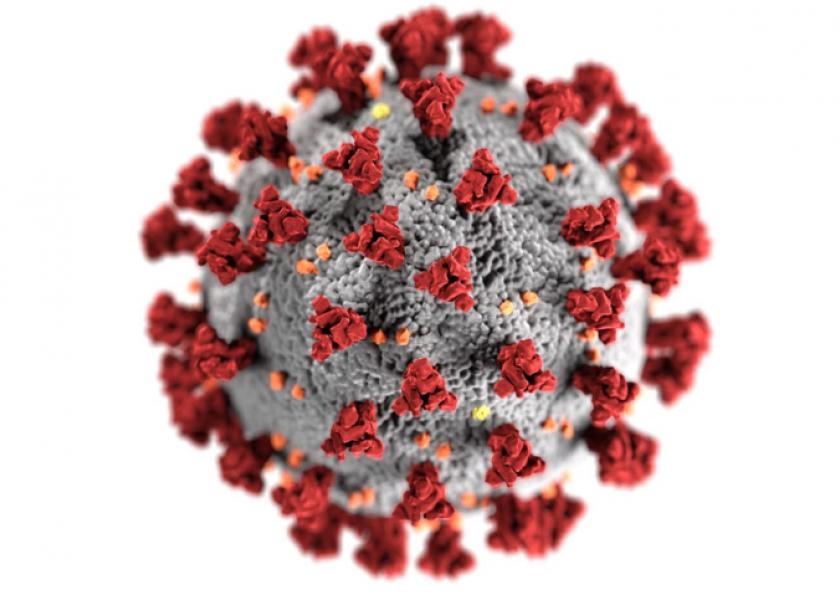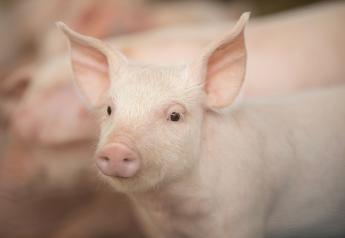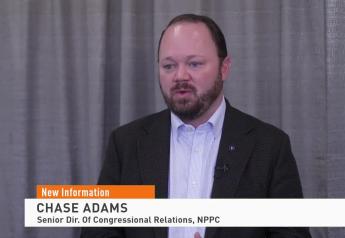K-State Infectious Disease Expert Offers Path For COVID-19 Research

There are many unanswered questions about COVID-19. A Kansas State University infectious disease scientist and collaborators are offering a possible research road map to find the answers.
Jürgen A. Richt, the Regents distinguished professor at Kansas State University in the College of Veterinary Medicine, has co-authored a critical needs assessment for coronavirus-related research in companion animals and livestock. The article, "A Critical Needs Assessment for Research in Companion Animals and Livestock Following the Pandemic of COVID-19 in Humans," appears in the journal Vector-Borne and Zoonotic Diseases. Co-authors include Tracey McNamara from Western University of Health Sciences and Larry Glickman from Purdue University.
"We need to address these challenges in a scientific manner — in a proactive manner, not in a reactive manner," said Richt, also the director of the university's Center of Excellence for Emerging and Zoonotic Animal Diseases, known as CEEZAD. "With COVID, every day something is new — what was correct yesterday, could be wrong today."
Because of the rapid change of knowledge related to coronavirus, Richt and his collaborators wrote the article to stress importance of studying the ways that COVID-19 could spread between humans and animals. The scientists say that research should focus in several areas, including:
- The potential for companion animals, such as cats and dogs, to carry the virus.
- The economic and food security effects if the virus can spread among livestock and poultry.
- National security areas, especially among service animals such as dogs that detect narcotics or explosives because COVID-19 is known to affect smell and cause hyposmia or anosmia.
"If dogs are susceptible and lose their smell and taste, it could affect our national security," said Richt, who also serves on an expert panel for the World Health Organization. "If livestock are also susceptible, it could significantly affect food safety and food security, too."
Richt's recent research has shown that pigs do not seem to be susceptible to coronavirus, but little is known if the virus affects cattle, sheep, chickens or wildlife. He is further studying if other livestock, such as cattle or sheep, may be susceptible to coronavirus.
The K-State Biosecurity Research Institute, or BRI, at Pat Roberts Hall provides the high-security laboratories needed for Richt and other scientists to study SARS-CoV-2, which is the virus responsible for COVID-19. The BRI is a biosafety level-3 facility that houses important multidisciplinary research, training and educational programs on pathogens that affect animals, plants and insects as well as food safety and security.
"Time is of the essence when responding to a new biological threat, and everyone at the BRI greatly appreciates the continued support from K-State leadership who realized the importance of keeping us operational," said Stephen Higgs, director of the BRI and editor-in-chief of Vector-Borne and Zoonotic Diseases. "Thanks to our dedicated and highly skilled BRI staff, we provided the safe, secure environment, training and infrastructure required for research on SARS-CoV-2. The paper explains why Dr. Richt's research in the BRI is so important to all of us and it was great that we were able to publish it so quickly and make it freely available."
Richt's own coronavirus research at the Biosecurity Research Institute focuses on four areas: animal susceptibility and transmission of SARS-CoV-2, therapeutic treatments, diagnostics and vaccines. Richt develops models to test therapies and has collaborated with researchers nationally and internationally. He also is collaborating to test and develop potential vaccines that are safer and do not lead to vaccine-associated enhancement of the disease, which is an important issue for coronavirus vaccines.
One of his collaborative projects involves Sean Joseph with Scripps Research, Sumit Chanda with Sanford Burnham Prebys Medical Discovery Institute and Adolfo García-Sastre with Icahn School of Medicine at Mount Sinai. The project has involved repurposing existing drugs that have been approved by the Food and Drug Administration for treating cancer, leprosy, Crohn's disease and other illnesses.
The researchers used a National Institutes of Health library of 12,000 drugs and tested them against COVID-19 in cell cultures to see if they inhibit SARS-CoV-2 replication. They have narrowed the list of drugs down to about 20 potentially effective drugs. Richt is now testing these potential antiviral drugs in preclinical models.
Another collaborative project with Nevan Krogan with University of California San Francisco and Adolfo García-Sastre with Icahn School of Medicine at Mount Sinai focuses on repurposing drugs based on coronavirus protein—host protein interaction studies.
"We are on the front end of studying whether these drugs, which look very promising in cell culture assays, can be used in COVID patients," Richt said. "We hope that the work we are doing presently will save lives."







